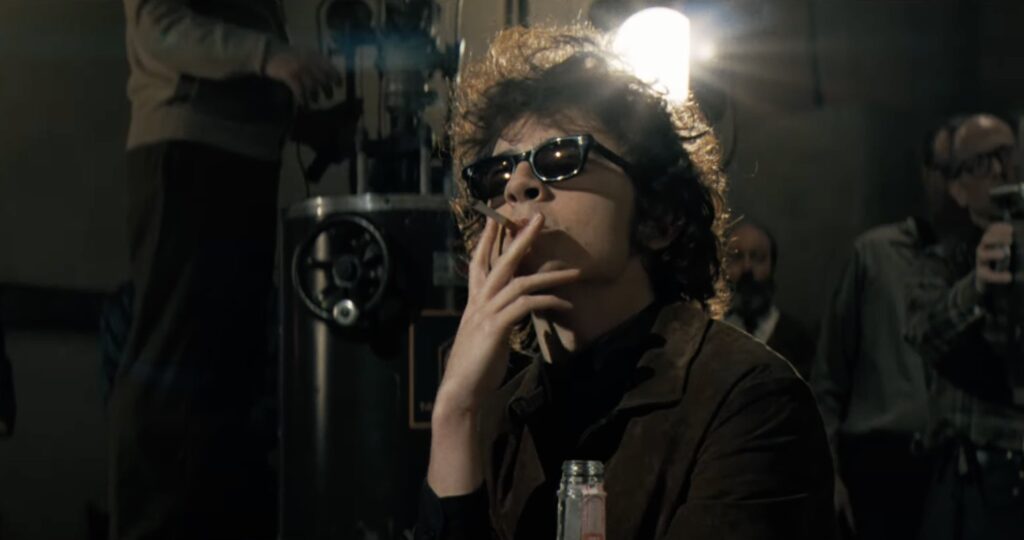A Complete Unknown (2024)
The unity of art and politics was not exactly a new concept in the 1960s, but Bob Dylan’s refreshing brand of celebrity that is both radically outspoken and mysteriously private inspires awe in A Complete Unknown, soulfully capturing the countercultural icon’s elusive, inscrutable essence.

